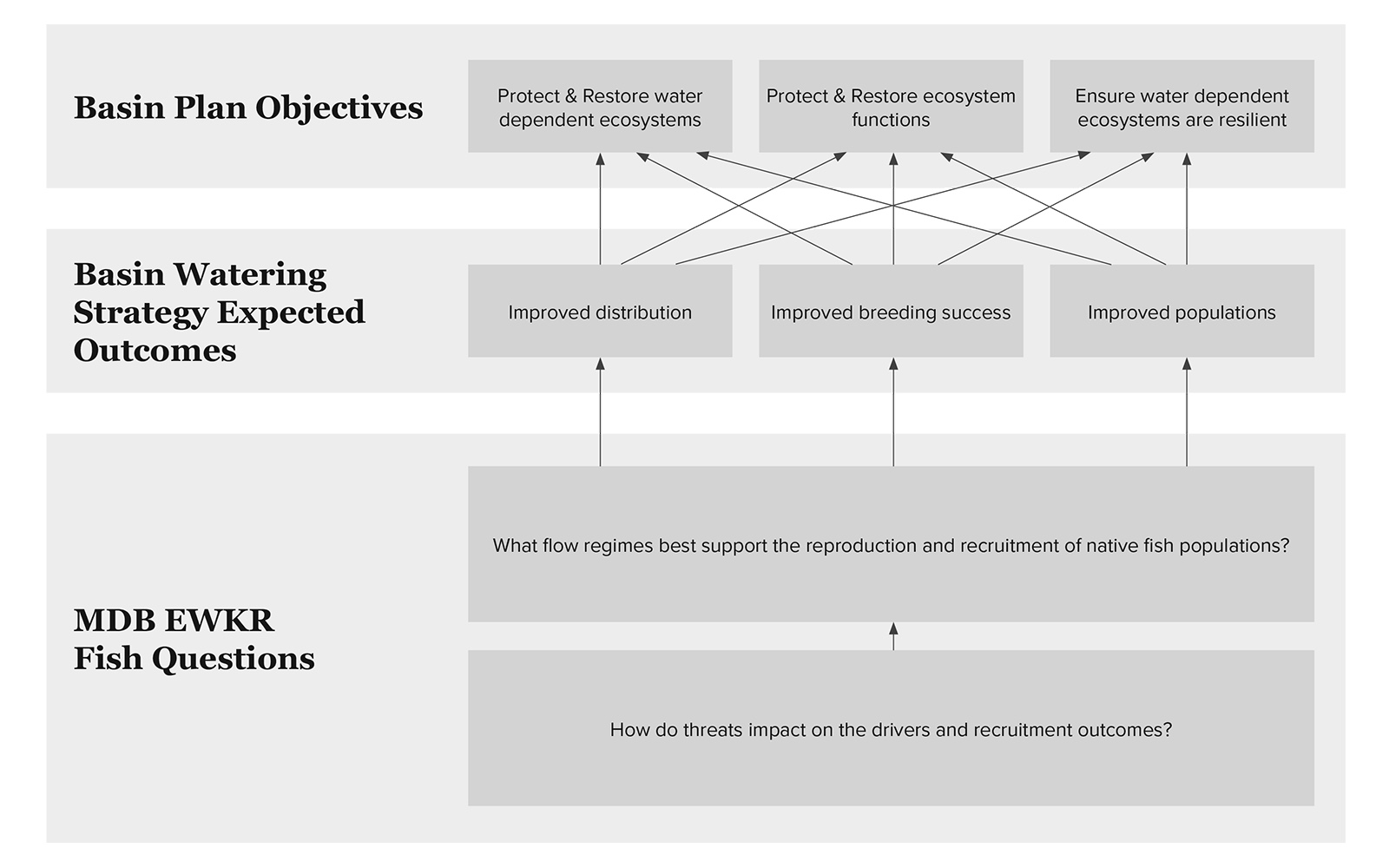
By contrast, populations of introduced fish like European carp, Redfin and Gambusia have grown rapidly, to the point where today they comprise 80–90% of fish biomass in many rivers in the Basin.
We know that native fish respond to changes in flow, habitat loss and connectivity, however, uncertainty remains about the relationship between specific changes in water flows and fish life cycles. This uncertainty makes effective environmental flow management and habitat restoration difficult. The situation is further complicated because changing flows also impact on invasive species, habitat alteration and fragmentation.
When we talked to water managers they wanted more information about how water flows interact with fish responses and life cycles. To meet this need we are investigating the main factors involved in sustaining or limiting the survival of fish through the recruitment phase of their life cycles, when mortality rates are highest. Recruitment investigates what fish larvae need to support them through to juveniles and then adulthood. We are particularly interested in understanding the relative significance of key factors such as food availability and habitat characteristics, and how these factors might interact with flow to affect fish recruitment and population sustainability.
How our fish work fits within the Basin Plan:

Application
The most significant output of MDB EWKR’s Fish Research program is a more refined conceptual model of the relationships between water flow, key drivers of fish recruitment and the response of different types of species. This ultimately improves the ability of water managers to predict how fish recruitment will be affected by different environmental flow conditions and other stressors. You can learn more about our work by accessing stories and watching the video.
Related stories:
Our MDB EWKR Fish Team:
Team Members |
Biography |
| Amina Price Fish Theme Coordinator La Trobe University amina.price@latrobe.edu.au |
Amina Price is an aquatic ecologist, and her research topics of special interest include:
|
| Stephen Balcombe
Griffith University |
Harry is currently a senior research fellow at the Australian Rivers Institute with research interest in:
|
| Paul Humphries
Charles Sturt University |
Dr Paul Humphries’ research interests mostly relate to rivers and their ecology. While he has worked mostly on fish-related topics, he also has an interest in macroinvertebrates and macrophytes. Most of his work in the last 20 years has been on the relationship between riverine biota and flow. Since 1996, he has focussed on aspects of the spawning and early life history of freshwater fishes. https://www.csu.edu.au/research/ilws/team/profiles/members/paul-humphries |
| Alison King
Charles Darwin University |
Alison is a Principal Research Fellow in RIEL, who is an internationally published aquatic ecologist, with broad research interests in the ecology of floodplain rivers. Her main research interests have focused on investigating the importance of freshwater flows in the ecology of fish, particularly fish recruitment, life history adaptations, environmental flows and flow-ecology relationships. She has a strong background in working collaboratively with a range of stakeholders to ensure improved management through knowledge generation and adaptive management, particularly in optimising flows for improved ecological outcomes. http://rieltest.mockingbird.cdu.edu.au/people/profile/alison-king |
| Brenton Zampatti
South Australia Research & Development Institute |
Brenton Zampatti is the Sub-program Leader (Fish Ecology) in the Inland Waters and Catchment Ecology Program at SARDI. The role is responsible for developing and leading research relating to the ecology of fishes and management of freshwater and estuarine ecosystems http://www.pir.sa.gov.au/__data/assets/pdf_file/0017/46421/Zampatti_Brenton_2016.pdf |